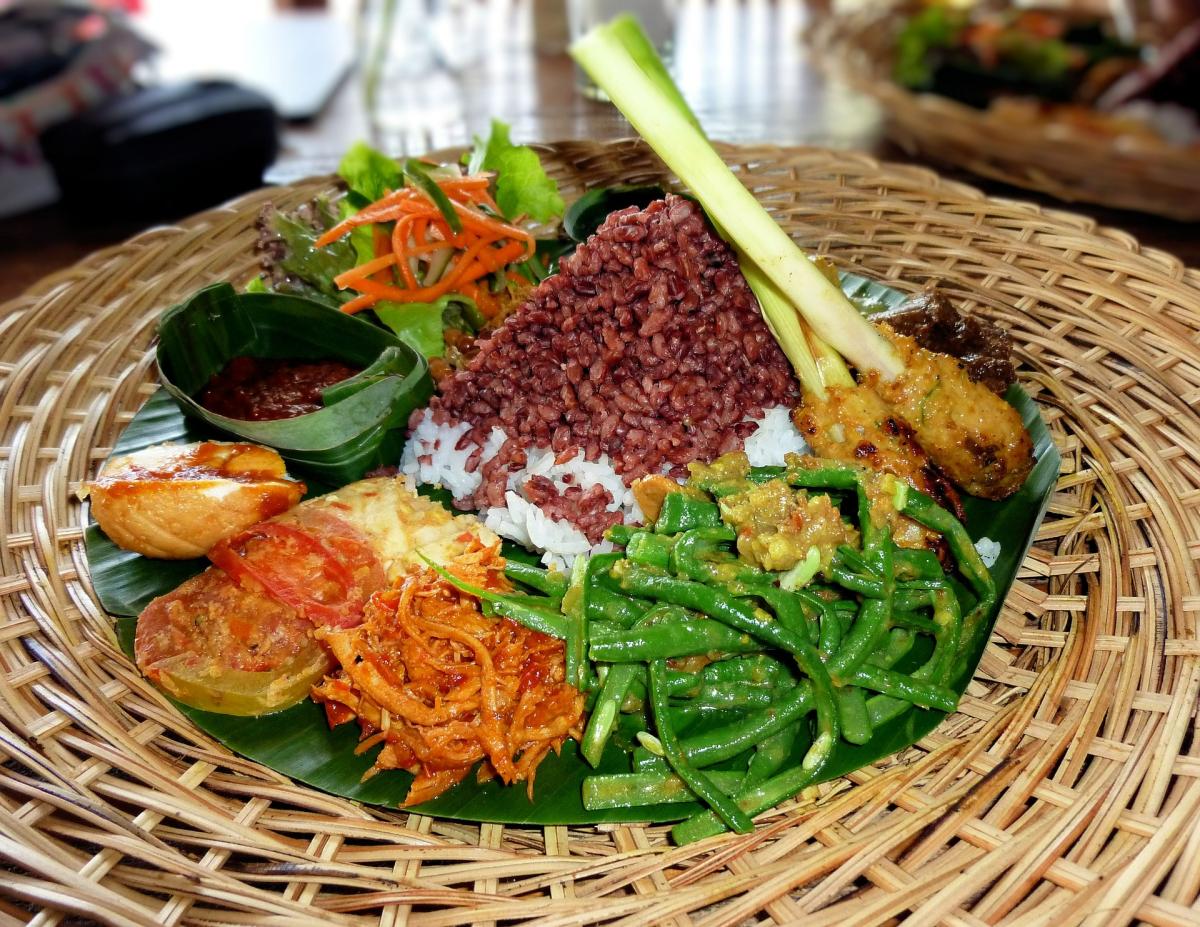The Bandung Food Change Lab – an exciting new social change process for a fairer, greener local food system in Bandung, Indonesia – has produced five innovative prototypes that could address common, yet often overlooked, issues affecting how low-income groups access affordable food from street vendors.
On 23 November at a Knowledge Café event, the designers presented their prototypes to an audience ranging from the media and representatives of municipal government units (such as the Health and Food Security Offices) to university students , and of course, street food vendors. The event organised by Riset Indie, Hivos and IIED’s local implementing partner of the Food Change Lab, served as a trigger for the broader Sustainable Diets for All (SD4All) campaign among youth in Bandung.
The SD4All programme is a partnership between Hivos, IIED and the Dutch government to transform the food system and promote sustainable diets. Promoting dietary diversity through consumers’ choice and voice is one of the key strategies the programme seeks to implement.
Five groups of students from the Bandung Institute of Technology’s School of Business and Management spent eight weeks conducting research and creating prototypes. Their prototypes are: Meli (Meja Lipat or Folding Table) a bench and table for customers while they wait; Kumbah (simple washing tool) to help street vendors wash their cutlery hygienically by using water in three small buckets; the Healthy Street Food Movement, wa.suh and Dadang Ramzi, a “home chef” activity to create simple yet healthy meals.
Amanda Mita, Programme Manager at Riset Indie said, “These prototypes represent innovative ideas to address the problems they’ve found in the field. In addition, the processes they undertook are also part of the process of sharing our understanding to young people about sustainable diets in an urban setting.”
“We involved the students directly in the Food Change Lab Project. They went to the field, looked at the problem, then looked for the solutions through the prototypes they created. We weren’t looking for anything too complicated, just simple solutions. We then discussed the prototypes with a variety of stakeholders, from policy makers to street food vendors. This was done to create a safe space for people to have dialogue and establish a common understanding. We also wanted people to become more aware of each other and start building trust.”
“Street food vendors have always been considered a complex, cross-dimensional and long-lasting problem in the city. On the one hand, they provide affordable food, especially for low-income consumers. On the other hand, they are often seen as disturbances to the order, beauty, and already limited green public spaces of Bandung. Thus, the love-hate relationship between street food vendors and the citizens confirms that this issue is not just a mere problem of urbanization and aesthetics, but also an issue affecting citizens who need affordable food,” explained Mita.
Seterhen ‘Saska’ Akbar, Riset Indie’s Project Coordinator, said that ideas generated from the Food Change Lab must lead to concrete, follow-up action and not only talk. This includes creating effective and inclusive government policies and practice that meets the needs and concerns of everyone involved in the local food system.




